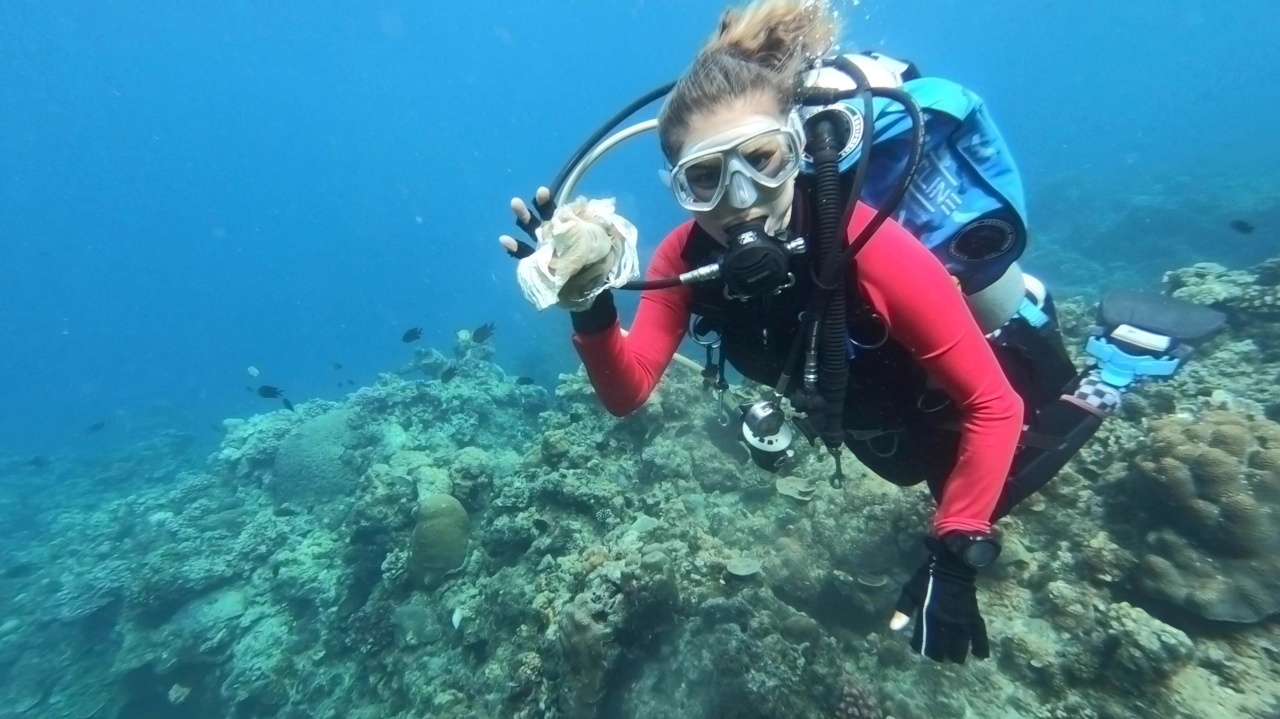 |
Resort owner and dive instructor Carmela Sevilla shows a plastic trash she recovered underwater during a scuba diving activity in Bauan, Batangas, Philippines, Sunday. (Reuters-Yonhap) |
Asia has been the epicenter of the plastic crisis, as the source of the bulk of the plastic waste in the oceans.
But the right investments can help reduce plastic waste -- and South Korea, Asia’s fourth-largest economy, can take a leading role, according to Alfonso Garcia Mora, the International Finance Corp.’s regional vice president, Asia & Pacific.
“Korea’s shift to a net-zero economy is likely to generate a range of innovative ideas and technologies,” Garcia Mora said in a recent interview with The Korea Herald.
Considering Korea’s green ambitions and its geographical proximity to major sources of plastic pollution in South and Southeast Asia, the IFC sees strong potential for collaboration with sustainability-minded Korean entities.
“When it comes to collaboration with Korean partners, I believe there is a good ecosystem of initiatives, understanding, and partnerships, thus we can have a positive outcome,” he said.
“Going forward, we should prioritize climate change as well as the green and blue agenda to build back better and ensure a resilient recovery.”
The IFC, a member of World Bank Group, is the international financial institution that encourages private-sector development in developing countries.
It has coined a new term, “blue loan,” to raise awareness of the grave impact that ocean pollution will have.
Blue financing proceeds are aimed at using ocean resources sustainably for economic growth, improving livelihoods, creating jobs and maintaining the health of ocean ecosystems, according to the IFC guidelines.
Garcia Mora’s assessment of Korea’s potential for becoming a leading blue loan investor is based on its drive to fight plastic waste.
Korean entities are largely conscious about their plastic waste disposal practices as the country aims to cut its plastic waste by 20 percent by 2025 and to raise the plastic recycling rate from 54 percent in 2020 to 70 percent by 2025. The country is also looking to limit the use of paper cups, plastic straws and plastic bags in retail with a new set of legal revisions underway.
Last year, the IFC took baby steps with a $300 million blue financing package for Bangkok-based Indorama Ventures, a manufacturer and recycler of plastic resin, to help the company expand its recycling capacity. The funding will allow the company to recycle 50 billion polyethylene terephthalate (PET) bottles each year by 2025.
Globally, up to 12.7 million tons of plastic debris finds its way into the oceans each year, and Asia contributes to over 80 percent of that.
In Thailand, the Philippines and Malaysia alone, more than 75 percent of recyclable plastics are discarded as general waste rather than recovered and recycled.
Especially in the wake of the pandemic, efforts to protect public health with single-use plastic masks and gloves have pushed the marine health agenda to the sidelines.
“COVID-19 has accelerated the (marine) crisis because everything we have been using to fight the pandemic happens to be made of plastic,” Garcia Mora said.
 |
Alfonso Garcia Mora, the International Finance Corp.’s regional vice president for Asia & Pacific (IFC) |
The blue bond is one way to collaborate with the IFC, along with other areas for private-sector engagement.
The IFC estimates that sustainable investment opportunities will generate over $10 trillion by 2030 and create over 200 million jobs for sustainable growth. At an event hosted by the IFC in Seoul in May -- Scaling Up Sustainable Investing in Emerging Markets -- Garcia Mora said he was able to gauge the level of interest here in emerging market investment opportunities, drawing 35 of the country’s leading financial institutions and corporations.
Another alternative is Asian financial institutions’ nonperforming loans, which could be remedied through the IFC’s Distressed Assets Recovery Program. The IFC has joined hands with the World Bank Group to try to help target countries overcome a lack of experience in judicial systems with regard to insolvency, and to help the private sector adapt to those regulations.
“Given the devastating impact of the pandemic last year, there is ample scope for infrastructure (projects),” Garcia Mora said. “Since the market really froze in terms of long-term finance, putting many investments on hold, we need to get back with opportunities and revive the market.”
So far, the IFC has provided financing for 51 projects involving Korean partners and banks worth over $6.6 billion since 2014, when it reestablished its presence in Korea.
By Son Ji-hyoung (
consnow@heraldcorp.com)









